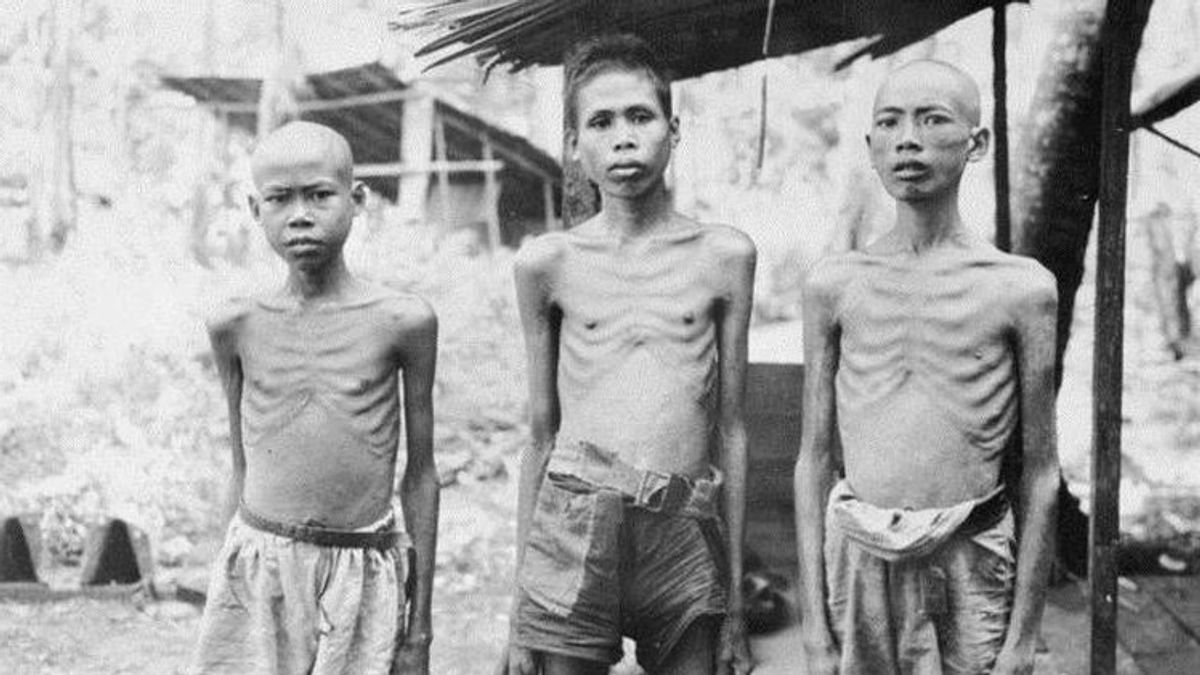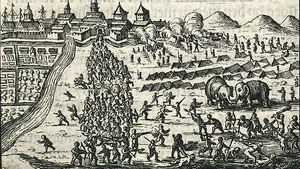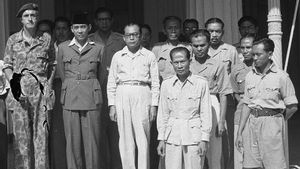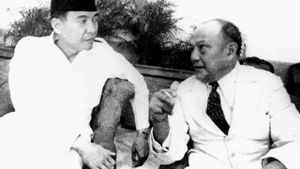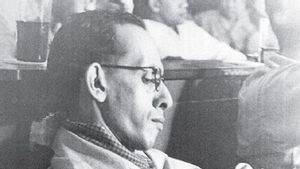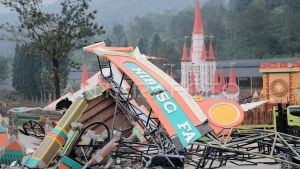JAKARTA - The Great Depression or better known as the Malaise Age has made the world panic. The life of the whole world fell to its lowest level. In the archipelago, let alone. All levels of society are affected by its impact. Even the natives became the most miserable.
Their fate is that the sustenance is getting narrower. Moreover, the colonial government of the Dutch East Indies refused to help. It is difficult for them to ask for forgiveness to be fulfilled. This narrative makes a disaster of hunger then spread throughout the country.
No one doubts that war often brings many harm rather than benefits. Take for example in World War I. The impact of World War I is everywhere. From poverty to economic chaos.
The problem was then exacerbated by the fall in stock prices on the New York United States (US) exchange in October 1929. The world's trade current has become sluggish. Industrial goods are starting to disappear from the market. Instead of expecting a new market, the purchasing power of the whole world is decreasing.
The world's scope also bears losses. The Dutch East Indies (now: Indonesia), especially. The colonial government, which was originally often dependent on the export value of plantation products, began to feel bankrupt. Its flagship gardens such as tobacco, rubber, sugar, coffee, and tea cannot be marketed.
Foreign nations are no longer able to buy it. The economic scheme, which relies on private plantation companies, made the Dutch unable to escape the economic recession. Many companies went out of business.
Existing entrepreneurs began to return to their hometowns. They could not bear the loss by confining themselves in the Dutch East Indies. Therefore, like it or not, the unemployment rate is increasing. The economic downturn was then widely remembered as the Malaise Age that occurred from 1928-1939.
The word Malaise itself is taken from French which means illness or sluggishness. However, the Bumiputras at that time had their own name: The Missing Age.
The government itself was one of the largest agricultural producers to make a profit of 54 million guilders in this field in 1928, but in 1932 its agricultural company suffered a loss of 9 million guilders. Other companies, such as mining, included a profit of 20 million instead of 50 million. European-owned and managed joint venture companies Europe saw their profits cut to almost zero.
"No dividends were paid, workers fired, and the general welfare of the European population decreased so quickly that income from income tax, which was almost all paid by Europeans (and few Chinese), shrank 50 percent from the previous level despite a sharp increase in tax level. There is always a big surplus of exports on imports, but when European and American customers can no longer buy, Indonesia cannot buy from Europe and America," wrote Bernard HM Vlekke in the book Nusantara (2008).
The nuances of the archipelago affected by the Malaise Age. European businessmen who were once rich, are now poor. While the natives who had been once oppressed, their fate was even more stunned. Mainly, those who have the status of lowly employees, laborers, or farmers.
The bad Malaise era caused a disaster of hunger to hit the archipelago. Food ingredients sold in the market are limited. Even if there is, purchasing power to buy non-existent foodstuffs. Independence fighters then flocked to ask the Dutch East Indies colonial government for responsibility.
The Dutch are considered to be the culprits of the impact of the Malaise Age spread to the archipelago. The owners of power were then asked to fight to save the lives of the Bumiputras who had been miserable. However, as before, the Dutch prioritized profit over helping the natives.
The attitude of wanting to make a profit itself has disrupted stability in the Dutch East Indies. Riots and crime are getting worse. The struggle arose because of the Dutch inability to perpetuate the recitation so that the natives would not go hungry.
Portraits of native farmers in the Dutch East Indies. (Wikimedia Commons)
Bumiputras who were hungry were forced to perpetuate acts against the law. Stealing, for example. This phenomenon was then widely reported by the mass media at that time. The hunger disaster forced one of the Bumiputra families to steal.
Great malaise that is raging everywhere has made the residents of Trogong Kekaran miserable and starving. The people there on average can't get money and many are starving because they don't have money to buy food. One of the people named Pungut is thought to have a great problem. He has bini and two children, while his income has completely been related to the difficult times. Meanwhile, he doesn't have any rice and the food is over."
"What can I do, soking can't be miserable because he hasn't owned rice for two days, on one night he dismantled a chicken coop from his neighbor named Djaja and from which he took two chickens. It was an animal and then he sold it in the market and therefore he bought 15 cents of rice. Later Pungut was arrested and jailed. On March 25, 1933, he had to face the landraad in Meester Cornelis (Jatinegara) and Pungut, I had really stolen two chickens for two days. Because, it's been two days since he didn't eat. Landraad considers he is clearly guilty of taking other people's chickens and Pungut was sentenced to nine months," wrote the report. Sin Po, March 27, 1933, as quoted by Soekarno in the Flag of the Revolution Volume 1 (2016).
اقرأ أيضا:
The English, Chinese, Japanese, Arabic, and French versions are automatically generated by the AI. So there may still be inaccuracies in translating, please always see Indonesian as our main language. (system supported by DigitalSiber.id)
